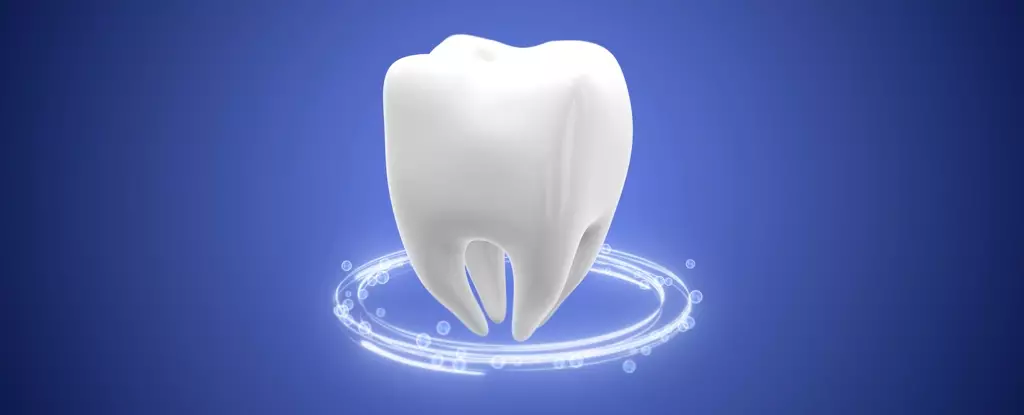In a world preoccupied with technological advancement, the prospect of growing teeth in a laboratory evokes visceral responses ranging from intrigue to unease. Shooting nerves through dental anxiety, one might wonder: does this seem like a stride toward futuristic comfort or a descent into a sci-fi nightmare? Recent breakthroughs from scholarly powerhouses like King’s College London and Imperial College London provide us tantalizing glimpses into a future where our dental woes could be confronted head-on, replacing suffering caused by cavities and damaged teeth. Underneath the shiny veneer of scientific progress, however, lurks a complex interplay of ethics, public perception, and the potential alteration of our natural human experience.
The Science of Hope: A Breakthrough in Dental Regeneration
Researchers have unveiled a novel hydrogel—an innovative substance crafted to enhance communication between cells—that serves as an alabaster framework encouraging the real growth of tooth structures and promoting natural regeneration. Diving into the pragmatic details, the material is sourced from the dental epithelial and mesenchymal cells of mouse embryos, stoking debates around the morality of animal-derived components in medical science. Xuechen Zhang, a PhD candidate in Regenerative Dentistry at KCL, poignantly captures the essence of this groundbreaking research, stating, “Lab-grown teeth would naturally regenerate.” These teeth would implant seamlessly into the jaw, offering characteristics not typically associated with conventional fillings or implants, like durability and biological compatibility. But as we inch closer to this scientific frontier, we must also meticulously examine the cultural implications, asking whether we are risking our intrinsic natural processes in a well-meaning endeavor.
Navigating the Ethical Labyrinth
The underlying question remains: are we tampering with nature in pursuit of convenience? As creatures fundamentally accustomed to aging and decay, the thought of manufactured teeth opens a Pandora’s box of ethical dilemmas. Were we to embrace this, we might be one step closer to reshaping what it means to be human, reprogramming our biological life cycle. Are we poised to create a society that sees the human experience—loss, aging, and imperfection—as merely disposable, erasing centuries of cultural value attached to these realities?
Additionally, the mechanism through which this hydrogel facilitates cell communication takes on a far more intricate dimension when considering the possible long-term effects on oral health. Could these lab-grown teeth inadvertently disrupt the delicate balance of microbes that inhabit our mouths, potentially leading to unforeseen consequences? Ignoring such implications would be akin to a dentist neglecting to advise you on post-procedure care.
The Path Forward: New Horizons in Dentistry
On a practical level, the science continues to march forward, aiming to recreate naturally occurring tooth growth, akin to the process of healing a simple cut. The temporal release of biological signals is a groundbreaking pivot from previous methodologies that employed a singular burst of signals, which failed to foster effective regeneration. While the dreams of fully growing teeth in our mouths from lab environments may be a lofty ambition, the journey of discovery is equally momentous.
Coupled with this triumph is the exploration of treatments for conditions like anodontia, a phenomenon blocking the natural development of teeth. The intertwining of advanced scientific endeavors with broader societal health concerns elevates this research beyond mere aesthetics; it embodies our collective aspiration for comprehensive oral health. Experts in regenerative dentistry, like Ana Angelova Volponi from KCL, excitingly propose that these innovative techniques could radically transform dental care—a sentiment that fills one with hope but also responsibility.
The Double-Edged Sword of Progress
The impending reality of lab-grown teeth holds both exhilarating promise and ambivalence, reflecting the profound disruption that advances in medical science can imprint on our culture and our very identity. As we unlock unprecedented advancements that push the boundaries of tradition, it becomes imperative to tread carefully, considering not just what we are capable of, but what we should aspire to be. In the balance lies a rich tapestry of possibility—each thread representing the confluence of science and ethics, of innovation and humanity. While the prospect of combating the burdens of dental loss invites elation, we must remain vigilant about the broader implications surrounding our journey toward a future of regenerative dentistry.


Leave a Reply